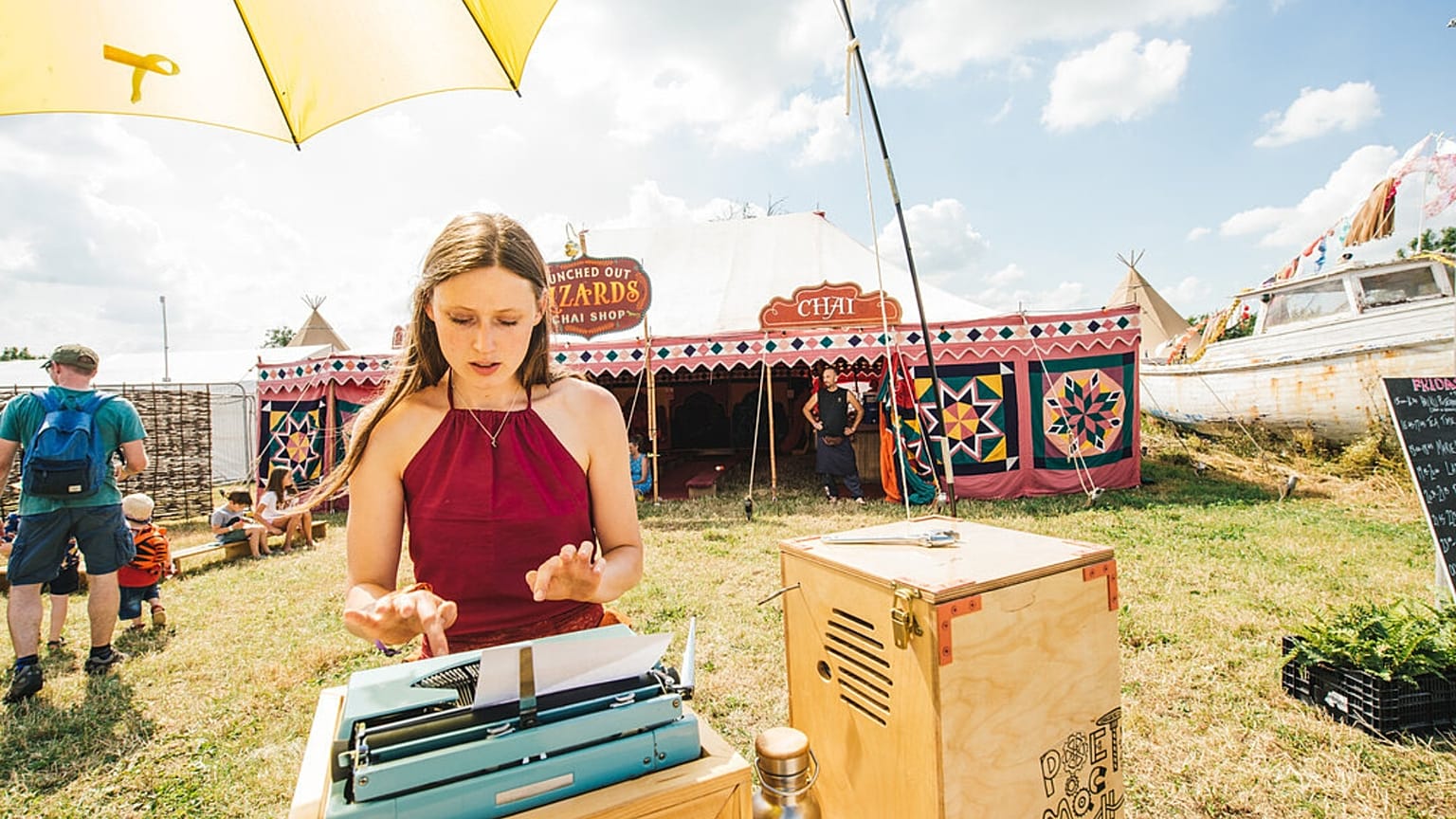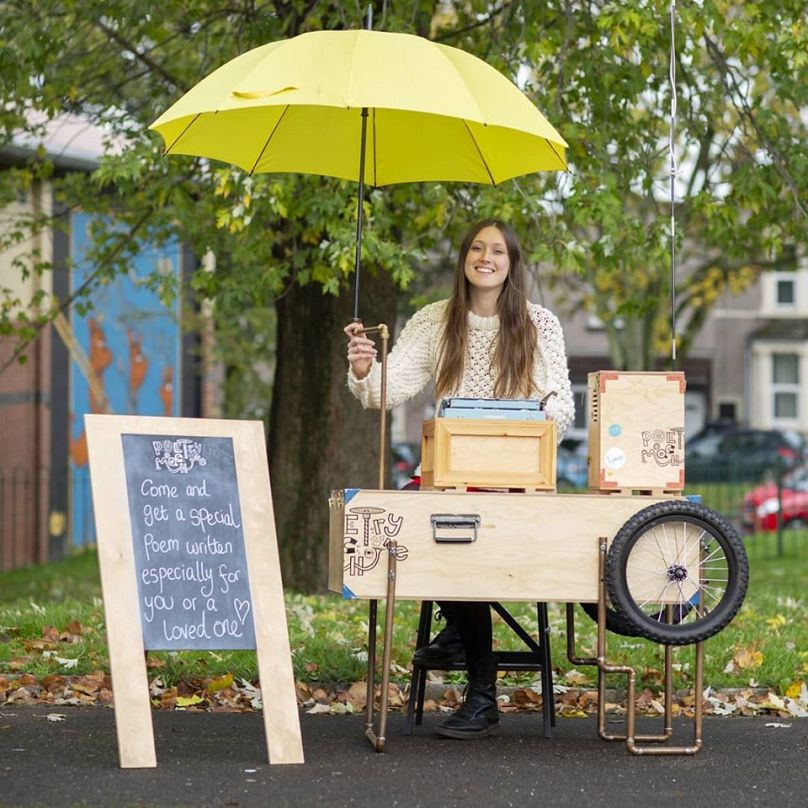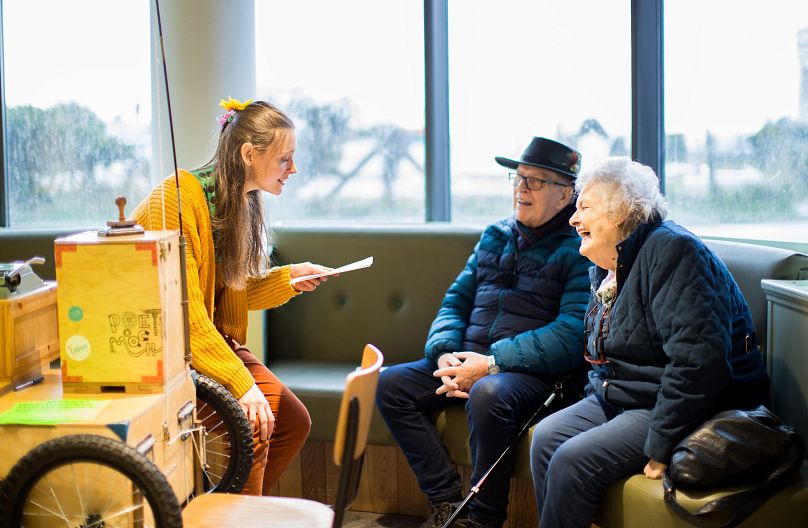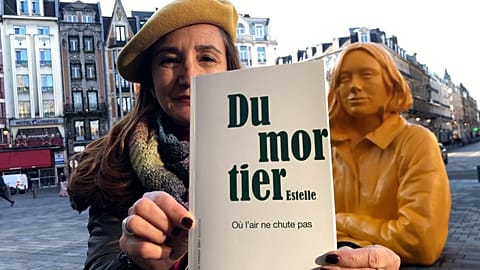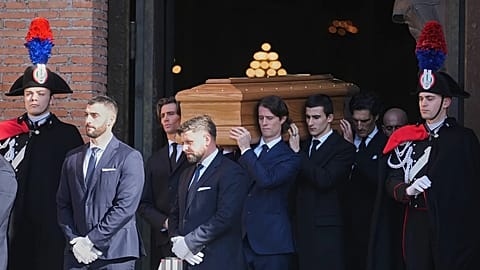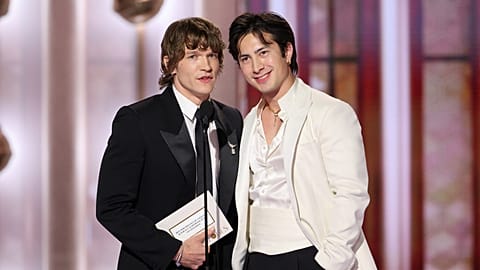Beth Calverley has travelled the country with her Poetry Machine, chatting to strangers and turning their conversations into beautiful pieces of art.
If you’re lucky enough to encounter the Poetry Machine this World Poetry Day, you’ll be in for a treat.
Under a bright yellow umbrella, the Poetry Machine is a charming wooden contraption housing a 19th century typewriter. But the real draw is its creator, Beth Calverley.
Each Poetry Machine experience is unique, but it follows a general rhythm. Calverley chats to you about your life, interests, and dreams as she slowly deducts what your poem should be. Then, with almost no hesitation, she diligently types away and produces a brand-new poem custom-made for you.
The Poetry Machine name officially refers to the roving typewriter set-up, but the true poetry machine is Calverley herself, who has created hundreds of poems for people across the UK.
“I've always been a bit of a people watcher. People are at the heart of all my poetry,” Calverley tells Euronews Culture.
Making each poem unique is Calverley’s priority. The last thing she wants is for any poem to sound like a one-size-fits all greetings card. To do this, she’s honed her listening skills to find the beauty in what the receiver says.
“When I'm asking questions, I'm trying to find a visual image, a central metaphor, or a moment in time - something specific that I can draw out and focus the poem on. And there are the sparkling little lines that people say too,” she explains.
A crucial step for Calverley’s process is that after she’s finished her draft, she asks the participant what they’d like changed. “I don't want to assume someone's experience,” she tells us. “If it's not exactly what they're saying, it allows space for them to say, ‘Oh, I want to change that’ and not feel that I've tried to inhabit their voice.”
The idea for the Poetry Machine came out of necessity.
While studying, Calverley brought her century-old typewriter to a culture festival. She lugged the weighty device along and entertained participants by writing a poem based on a single word they’d chosen. “I had to keep putting it down every few metres because it was so heavy,” she laughs, but the experience was eye-opening.
“I just realised that I really enjoyed doing it and that I felt a real connection with people while I was doing it,” she recalls.
Calverley expanded the idea from a single word to the flowing conversational style she now adopts, as well as commissioning the creation of her poetry machine.
At first, the Poetry Machine was a spare-time activity for Calverley as she went about a traditional office job. Her passion for her side project soon overcame any interest in office life. After a normal working day, Calverley would spend up to four hours every evening and her whole weekends on the Poetry Machine.
“Everyone was coming up to me and asking, ‘How are you doing that’?” Calverley says. “So I just decided to go for it. That was August 2018.”
For the past five years, Calverley has singularly focused on poetry. She became the resident poet for Bristol and Western NHS Foundation Trust. At first she was the poet-in-residence for one community hospital, but the role has expanded to the entire region. Now she's also poet-in-residence for Oxford University Hospitals NHS and the Clatterbridge Cancer Centre in Liverpool.
Calverley takes the Poetry Machine all around the UK to festivals and private events. She’s also released a volume of poetry ‘Brave Faces & Other Smiles’, but it’s working in the health sector that Calverley has fully realised the potential of the art form.
The Poetry Machine isn’t a therapy service but through her conversations with people, Calverley finds she reaches incredibly deep emotional truths with participants. Through her NHS work, she conducted a workshop with stroke victims who were suffering from aphasia, causing difficulties in speech and language.
“People who have aphasia don't necessarily recall words in the same way they used to. So I used a verbatim approach because I wanted to show the people in that group their words themselves were really poetic.” By just copying down their own phrases, Calverley didn’t need to inject her own perspective to find the poetry in the patients’ voices.
“I feel it's quite simple what I'm doing. I'm just listening, writing it down, and then reading it back and giving people the opportunity to change it,” Calverley says, modestly. For many people at festivals and other events, her poems are a delightful memento. With people like the ones in the aphasia group, the impact can be startling.
One recent testimonial from the group said that the poetry exercise was the “turning point” in their post-stroke journey. Through that poetry workshop, relaying the patients’ own words back as beautiful lyrics, Calverley had “given them back their identity”.















